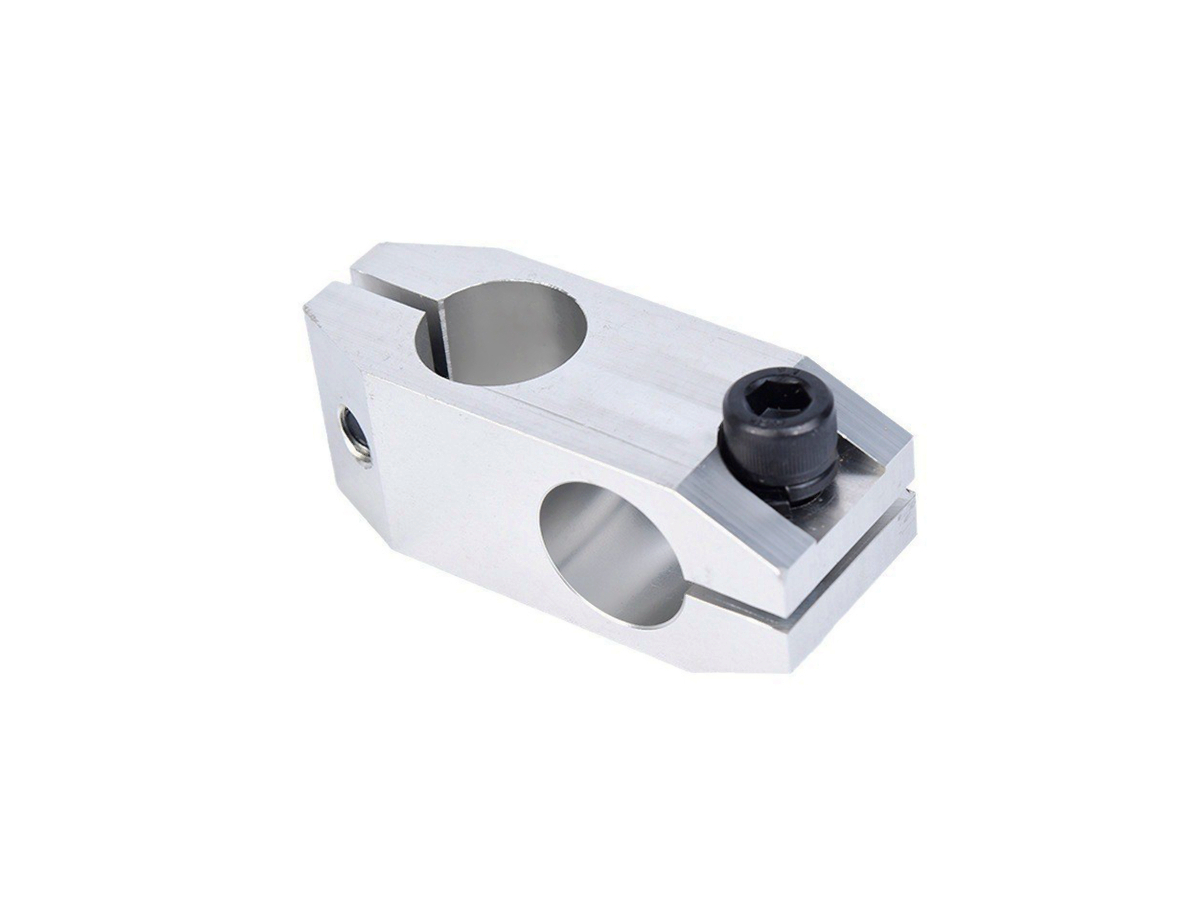Low-Volume CNC Machining Solutions for SUS420: Ideal for Hardened Components
Introduction to Low-Volume CNC Machined SUS420 Stainless Steel for Hardened Components
Industries such as medical instruments, precision tooling, and cutting tools manufacturing frequently require materials that deliver high hardness, exceptional wear resistance, and robust mechanical performance. SUS420 stainless steel, known for its capability to achieve high hardness levels (50-55 HRC) through heat treatment, stands out as an optimal choice for low-volume production of precision hardened components, including surgical instruments, blades, molds, and specialty fasteners.
Utilizing advanced CNC machining, manufacturers can precisely fabricate intricate SUS420 components with strict dimensional accuracy, complex geometries, and excellent surface finishes, ensuring high reliability and prolonged operational life.
Comprehensive Analysis of SUS420 Stainless Steel for Hardened Components
Comparative Performance of SUS420 Stainless Steel and Similar Materials
Material | Tensile Strength (MPa) | Hardness (HRC) | Machinability | Typical Applications | Advantage |
|---|---|---|---|---|---|
760-1100 | 50-55 | Moderate | Blades, surgical instruments | High hardness, excellent wear resistance | |
760-1030 | 58-60 | Moderate | High-end cutting tools, bearings | Superior hardness, wear resistance | |
480-690 | 40-45 | Good | General tool components, hardware | Moderate hardness, good machinability | |
930-1310 | 35-44 | Moderate | Aerospace fittings, precision shafts | Excellent strength, moderate hardness |
Strategic Material Selection for CNC Machined SUS420 Hardened Components
Selecting SUS420 stainless steel for hardened CNC machined components requires evaluation of hardness, wear resistance, and mechanical performance:
Precision surgical instruments, blades, and tooling components requiring high hardness levels (50-55 HRC) and excellent wear resistance significantly benefit from SUS420 stainless steel due to its ideal hardness and toughness balance.
For applications demanding even higher hardness (58-60 HRC) such as premium cutting tools and bearings, SUS440C stainless steel is a superior choice.
General-purpose tool components and hardware requiring moderate hardness (40-45 HRC) and good machinability often utilize SUS410 stainless steel.
Aerospace components and precision shafts requiring high tensile strength (930-1310 MPa) with moderate hardness (35-44 HRC) typically select SUS630 (17-4PH) stainless steel.
Precision CNC Machining Processes for SUS420 Stainless Steel Components
CNC Machining Process Performance Overview
CNC Machining Process | Dimensional Accuracy (mm) | Surface Roughness (Ra μm) | Typical Applications | Key Advantages |
|---|---|---|---|---|
±0.005-0.01 | 0.4-1.6 | Cylindrical hardened tools, surgical components | High precision, excellent surface finish | |
±0.005-0.02 | 0.4-3.2 | Complex molds, cutting blades | Versatile, detailed machining | |
±0.002-0.005 | 0.1-0.4 | High-precision cutting tools, molds | Superior precision, exceptional surface finish | |
±0.003-0.01 | 0.2-0.6 | Complex surgical tools, intricate hardened parts | Ultra-precision, complex geometry |
Optimizing CNC Machining Processes for SUS420 Stainless Steel Components
Selecting optimal CNC machining methods for SUS420 stainless steel depends on component complexity, dimensional precision, and surface quality:
Cylindrical components like hardened surgical instruments and precision tooling requiring rotational precision (±0.005 mm) and fine surface finishes (Ra ≤1.6 µm) utilize CNC Turning Service.
Complex blades, molds, and custom-hardened components demanding intricate features and precise dimensional accuracy within ±0.005 mm are ideally suited to CNC Milling Service.
High-precision cutting tools, molds, and critical components requiring exceptional surface finishes (Ra ≤0.4 µm) and extreme dimensional accuracy (±0.002 mm) significantly benefit from CNC Grinding Service.
Complex, multi-feature hardened surgical instruments or precision molds requiring intricate contours and ultra-tight tolerances (±0.003 mm) achieve optimal outcomes with Multi-Axis CNC Machining Service.
Advanced Surface Treatments to Optimize SUS420 Stainless Steel Components
Surface Treatment Performance and Suitability
Treatment Method | Corrosion Resistance | Wear Resistance | Industrial Suitability | Typical Applications | Key Features |
|---|---|---|---|---|---|
Moderate | Very High (50-55 HRC) | Excellent | Cutting tools, blades, molds | Optimal hardness, strength improvement | |
Excellent (>1000 hrs ASTM B117) | Moderate | Excellent | Surgical instruments, precision tooling | Enhanced corrosion resistance, surface purity | |
Excellent (>1500 hrs ASTM B117) | Very High (HV1500-2500) | Excellent | High-wear blades, precision tools | Exceptional hardness, wear protection | |
Outstanding (>1500 hrs ASTM B117) | Moderate | Excellent | Medical blades, precision instruments | Improved surface finish, corrosion resistance |
Strategic Surface Treatment Selection for CNC Machined SUS420 Stainless Steel
Choosing surface treatments for SUS420 components involves hardness enhancement, wear resistance, corrosion resistance, and surface finishing:
Blades, molds, and tooling components requiring high hardness (50-55 HRC) utilize Heat Treatment (Hardening & Tempering) to achieve optimal mechanical properties.
Surgical instruments, medical blades, and precision tooling components benefit from Passivation, enhancing corrosion resistance (≥1000 hrs ASTM B117) and ensuring surface cleanliness.
High-wear cutting tools, precision blades, and molds significantly benefit from PVD Coating for superior wear resistance and hardness (HV1500-2500), ensuring durability and extended lifespan.
Medical instruments and precision tools requiring superior smoothness and hygiene frequently undergo electropolishing, which improves corrosion resistance and surface finish quality.
Rigorous Quality Assurance for CNC Machined SUS420 Stainless Steel Parts
Detailed Quality Control Practices
Quality assurance for CNC machined SUS420 stainless steel components includes:
Dimensional Inspection: Coordinate Measuring Machines (CMM) verify dimensions within tight tolerances (±0.002 mm to ±0.01 mm).
Surface Finish Testing: Profilometer evaluations ensure adherence to surface roughness specifications (Ra 0.1-3.2 µm).
Hardness Testing: Rockwell hardness tests (HRC) validate hardness levels (50-55 HRC).
Mechanical Property Testing: Tensile and yield strength tests ensure compliance with ASTM standards.
Corrosion Resistance Testing: ASTM B117 salt spray testing confirms protection standards (≥1000 hrs).
Non-Destructive Testing (NDT): Ultrasonic, magnetic particle inspections ensure structural integrity and defect-free components.
Comprehensive Documentation: ISO 9001-compliant documentation ensures full traceability and quality adherence.
Key Applications of CNC Machined SUS420 Stainless Steel Components
Surgical instruments and medical blades.
Precision cutting tools and molds.
Specialty fasteners and hardware.
Wear-resistant tooling components.
Related FAQs:
Why select SUS420 stainless steel for hardened CNC machined components?
Which CNC machining processes are optimal for SUS420 stainless steel?
What surface treatments enhance SUS420 stainless steel hardness and durability?
How does low-volume CNC machining benefit production of SUS420 parts?
Which industries utilize CNC machined SUS420 hardened components?

